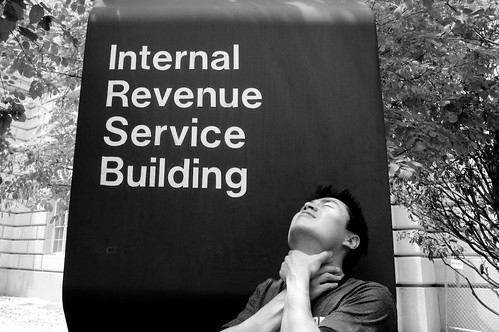
By Pat Shannan
A Bryantown, Md., nurse accomplished two rare tax court feats in her battle with the Internal Revenue Service recently. She not only won against the agency’s high-priced legal team without using an attorney herself, but she also got a ruling that could help tens of thousands of students deduct the cost of a masters degree on their future taxes.
The odyssey of Lori Singleton-Clarke, 47, began in 2006, when she filed her 2005 return. It showed just over $50,000 in income, several smaller deductions, and one large one—for $14,787 of expenses for an MBA from the University of Phoenix, an online school.
Ms. Singleton-Clarke deducted the tuition because her tax preparer told her that met the law’s narrow definitions. When the IRS audited the return in late 2006, she conceded all the IRS’s challenges to her deductions but one. She dug in her heels on the tuition deduction because, after looking at a complex diagram in IRS Publication 970, she believed she qualified for it.
Ms. Singleton-Clarke drew on skills she developed as a nurse responsible for dealing with doctors who may have infringed hospital rules. That was why she studied for her MBA: she says, “I didn’t want to feel outmatched by surgeons who didn’t want to talk to me.”
The U.S. Tax Court handed Ms. Singleton-Clarke her victory last month, saying that the business school deduction had been proper. The ruling is certain to make the expense of a post-college degree more attractive for many other professionals in the future.
After getting word of the court decision by mail, “I nearly yelled the roof off the house,” Ms. Singleton- Clarke says. “I still can hardly believe it.” She says she didn’t have a lawyer for the simple reason that she couldn’t afford one.
Decisions in small cases aren’t allowed to be cited as precedent.
“But everyone uses them,” says Melissa Labant, a tax expert with the American Institute of CPAs. “This case definitely provides a road map others can use, especially MBA students.”
Few taxpayers go toe-to-toe with the IRS as Ms. Singleton-Clarke did, arguing her case without a lawyer. For good reason: In 2009, individuals won only about 10 percent of about 300 such cases, according to data from Tax Analysts, a group that fights for tax-system transparency and since 1972 has won a series of freedom-of-information cases against the IRS.
Some of the losers, such as several dozen tax protesters, were tilting at tax windmills. Others were simply on the wrong side of the law, including a horse enthusiast who wanted to deduct his hobby losses, an unsuccessful comedian who tried to classify his expenses as business losses, and an attorney who claimed over $100,000 in medical deductions for his visits to prostitutes.
Of the few who did prevail against the IRS, nearly half came to court on a single issue: requests for “innocent spouse” treatment that decouples a spouse from a partner who does not pay his taxes. This provision has been used mostly to protect wives. One of the spouses granted relief last year was formerly married to an investment banker who didn’t pay his taxes after his bonus didn’t come through.
Source: American Free press

















